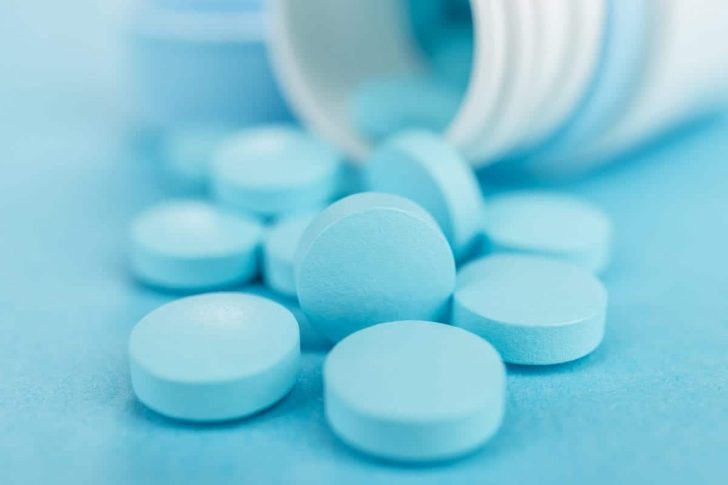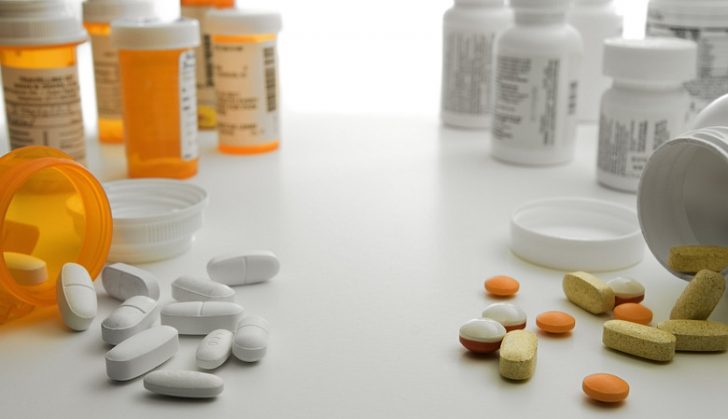
Do Muscle Relaxers Show Up On A Drug Test? Here’s What You Need to Know

When you are gearing up for a drug test, be it for employment, sports, or any other reason, you might find yourself pondering over a peculiar question: Do muscle relaxers show up on a drug test? This query is not just a passing thought for many. It is a significant concern, especially for those prescribed muscle relaxers for various health conditions.
Now, let’s go ahead and explore in detail:
What Are Muscle Relaxers?
Muscle relaxers, or muscle relaxants, are a group of medications prescribed to alleviate muscle spasms, pain, and discomfort associated with conditions like back pain, neck pain, and certain muscular disorders. These medications work by causing the muscles to relax. This can significantly reduce pain and improve mobility.

The Talks / Muscle relaxers are often prescribed following an injury or to treat chronic conditions like multiple sclerosis or cerebral palsy.
Muscle relaxers can be broadly classified into two categories: antispasmodic and antispastic. Antispasmodic muscle relaxers are typically used to treat muscle spasms resulting from musculoskeletal conditions. On the other hand, antispastic muscle relaxers are prescribed for conditions that affect the brain or spinal cord.
Examples of commonly prescribed muscle relaxers include cyclobenzaprine (Flexeril), carisoprodol (Soma), and methocarbamol (Robaxin). Each of these medications works in a slightly different way. But the end goal is the same: to reduce muscle tension and provide relief from pain.
How Do Muscle Relaxers Work?
To understand how muscle relaxers work, it is essential to grasp the basics of muscle contraction. At the molecular level, muscle contraction is initiated by the central nervous system, which sends signals to muscle fibers to contract. Muscle relaxers interfere with these signals in various ways, depending on the type of medication.

Cotton Bro / Pexels / Some muscle relaxers work by acting directly on skeletal muscle fibers, reducing the intensity of muscle contractions.
Others work centrally, meaning they affect the brain or spinal cord’s ability to send signals to muscles. By interrupting these signals, muscle relaxers help to reduce spasms and pain, making them invaluable for many people suffering from muscular disorders or injuries.
Do Muscle Relaxers Show Up On A Drug Test?
Now, let’s address the crux of the matter: Do muscle relaxers show up on a drug test? The straightforward answer is, it depends. Most standard drug tests, particularly those used for employment screening, are designed to detect specific substances, such as narcotics, amphetamines, benzodiazepines, cannabis, and alcohol. Muscle relaxers are not typically included in these panels unless there is a specific reason to test for them.
However, certain muscle relaxers may yield a false positive for other substances. For example, carisoprodol (Soma) has been known to trigger false positives for benzodiazepines in some tests. It is important to note that advanced testing methods, such as gas chromatography-mass spectrometry (GC-MS), can accurately identify specific drugs and their metabolites, thereby reducing the likelihood of false positives.

Health News / If you are prescribed muscle relaxers and are concerned about a forthcoming drug test, it is advisable to inform the testing entity about your prescription.
Providing documentation from your healthcare provider can help clarify the situation and prevent misunderstandings regarding your test results.
The Final Word
Understanding whether muscle relaxers show up on drug tests is crucial for those relying on these medications for pain relief and improved mobility. While most standard drug tests do not specifically target muscle relaxers, the potential for false positives exists, making it essential to communicate openly with your employer or testing agency.
So, while muscle relaxers play a vital role in managing pain and muscular disorders, their impact on drug testing is minimal, provided the necessary precautions are taken. By staying informed and proactive, you can navigate the complexities of drug testing with confidence. This ensures that your medication does not inadvertently affect your career or sporting aspirations.
More in Health Insurance
-
`
Amanda Bynes Pregnant at 13? Debunking the Rumors
In recent years, the internet has been ablaze with rumors surrounding former child star Amanda Bynes, particularly regarding allegations of a...
July 1, 2024 -
`
Can Baking Soda Clean Your Lungs?
Years of inhaling cigarette smoke, pollution, and other toxins can leave you longing for a way to cleanse your lungs. The...
June 27, 2024 -
`
How to Build Muscle Mass After 60? 5 Proven Strategies
Curious about how to build muscle mass after 60? You are not alone. And the good news is that it is...
June 20, 2024 -
`
Prediabetic Foods That Can Lower Your Blood Sugar in 2024
Prediabetes is a health condition characterized by blood sugar levels that are higher than normal but not high enough to be...
June 13, 2024 -
`
Kelly Clarkson’s Weight Loss Journey | Here Are the Details
Kelly Clarkson’s weight loss has been a hot topic among fans and media alike. The iconic American singer and host of...
June 3, 2024 -
`
Essential Vitamins for Gut Health – A Comprehensive Guide
Our gut does more than just digest food – it plays a vital role in immunity, mood, and overall health. But...
May 30, 2024 -
`
Looking to Build A Stronger Sculpted Back? Try Cable Back Workouts
Back workouts using cables, or cable back workouts as they are commonly known, have become the gold standard for anyone aiming...
May 22, 2024 -
`
How Much Water Should I Drink on Creatine? Hydration Tips
Creatine, a popular supplement among athletes and fitness enthusiasts, has gained widespread recognition for its ability to enhance muscle strength, power,...
May 17, 2024 -
`
What Is Bruce Willis’s Net Worth? Get the Inside Scoop Here!
Bruce Willis, the action hero who has saved the day countless times on screen, has built a legendary career. But how...
May 11, 2024















You must be logged in to post a comment Login